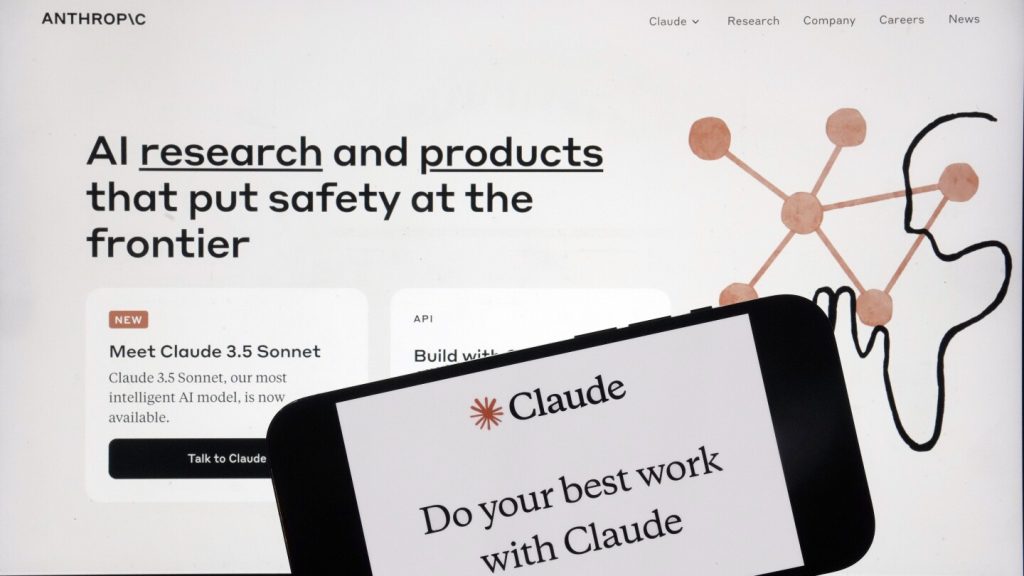A group of authors is suing artificial intelligence startup Anthropic, alleging that the company engaged in “large-scale theft” by training its popular chatbot Claude on pirated copies of copyrighted books. The lawsuit, filed in a federal court in San Francisco, accuses Anthropic of profiting from the unauthorized use of human expression and ingenuity behind works of fiction and nonfiction. This is the first case against Anthropic from book authors, but the company is also facing a lawsuit by major music publishers claiming that Claude regurgitates copyrighted song lyrics.
Anthropic, a smaller San Francisco-based company founded by ex-OpenAI leaders, has positioned itself as a more responsible and safety-focused developer of generative AI models that can compose emails, summarize documents, and interact with people in a natural way. However, the lawsuit alleges that the company’s actions contradict its stated goals by relying on repositories of pirated writings to build its AI product. The authors bringing the lawsuit, Andrea Bartz, Charles Graeber, and Kirk Wallace Johnson, seek to represent a class of similarly situated authors seeking justice for the unauthorized use of their work.
This lawsuit is part of a growing trend of legal challenges against developers of AI large language models in both San Francisco and New York. OpenAI, Microsoft, and other tech companies have been battling copyright infringement cases led by well-known authors and media outlets. The common thread among these cases is the claim that tech companies have used vast amounts of human writings to train AI chatbots without obtaining permission or compensating the original creators. Artists, musicians, and other creators are also joining the chorus of voices denouncing the alleged misappropriation of their work for AI profits.
While tech companies argue that training AI models falls under the “fair use” doctrine of U.S. copyright laws, allowing for limited uses of copyrighted materials for teaching, research, or transformation, the lawsuit against Anthropic challenges this argument. The authors claim that Anthropic utilized a dataset called The Pile that included pirated books and that AI systems do not learn in the same way humans do. They argue that humans who learn from books typically purchase or borrow lawful copies, providing some measure of compensation to authors and creators. This case sheds light on the ethical and legal questions surrounding the use of copyrighted materials in AI development.
The outcome of this lawsuit could have significant implications for the future of AI development and the rights of creators. As technology continues to advance, the intersection of AI and intellectual property law becomes increasingly complex. The case against Anthropic highlights the ongoing debate over the ethical use of data and the need for clearer guidelines and regulations to protect the rights of authors, artists, and other creators in the digital age. It remains to be seen how the court will rule in this landmark case and what impact it will have on the broader AI industry.
This legal battle underscores the importance of ensuring that AI development respects the rights of creators and upholds ethical standards. As the use of AI models becomes more widespread, it is crucial for companies to prioritize transparency, accountability, and fair compensation for the use of copyrighted materials. The outcome of this lawsuit will not only affect Anthropic and its chatbot Claude but could also set a precedent for how AI companies handle intellectual property issues in the future. The case serves as a reminder of the complex ethical considerations that accompany technological innovation and the need for careful regulation to balance innovation with respect for intellectual property rights.


